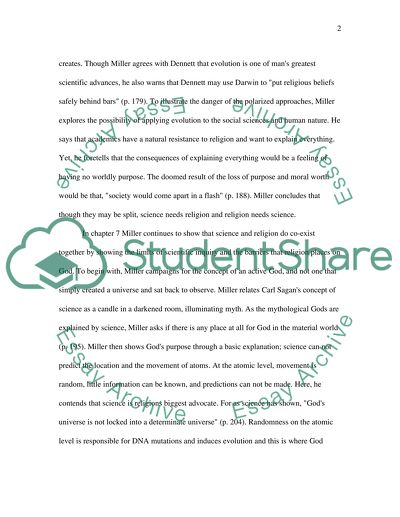Finding Darwin's God Essay Example | Topics and Well Written Essays - 500 words. Retrieved from https://studentshare.org/philosophy/1506558-finding-darwins-god
Finding Darwin'S God Essay Example | Topics and Well Written Essays - 500 Words. https://studentshare.org/philosophy/1506558-finding-darwins-god.


